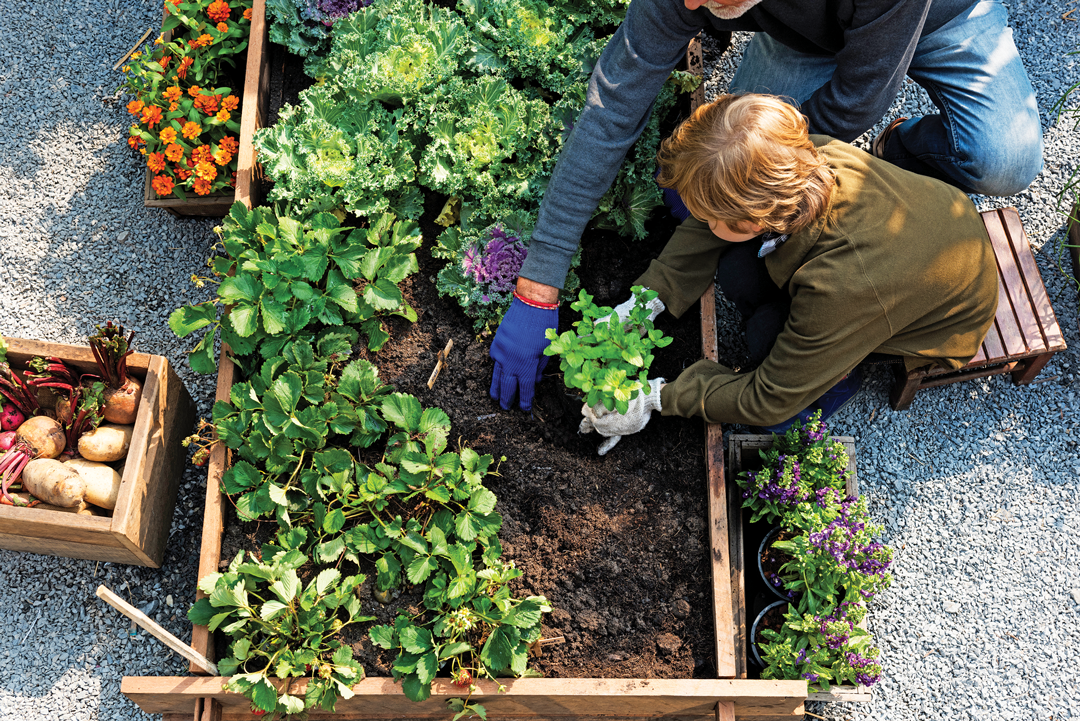Opening the Conveniences of Horticulture: A Detailed Look at the Different Types and Their Influence On Well-Being
Checking out the diverse advantages of horticulture discloses a range of techniques that significantly enhance private health. From veggie and natural herb gardens to container and increased bed setups, each type offers distinct advantages that prolong beyond mere farming. These tasks not just foster physical health and wellness through energetic engagement yet additionally add to mental wellness by reducing tension and encouraging mindfulness. As we examine these diverse horticulture techniques, it ends up being apparent that their impact can reverberate on personal, social, and environmental degrees, motivating a better look at just how these links form a natural story of all natural wellness.
Sorts Of Horticulture

Flower horticulture, an additional preferred category, stresses the aesthetic allure of grown blossoms. This kind can improve landscapes and promote biodiversity by bring in valuable pollinators. Herb horticulture includes growing fragrant and culinary plants, adding both to cooking and all-natural solutions.
Container gardening offers versatility, making it possible for people with limited room to participate in horticulture by utilizing pots and planters. This technique is particularly preferred in metropolitan setups. Increased bed horticulture, on the other hand, entails producing elevated stories that enhance dirt drain and ease of access, making it easier for garden enthusiasts to handle their plants.
Finally, area gardening cultivates collaboration amongst individuals in shared rooms, promoting social communication and cumulative obligation. Each kind of gardening offers distinctive purposes and satisfies various preferences, making horticulture a flexible task that can be tailored to private demands and environments.
Mental Health And Wellness Advantages
Participating in various sorts of gardening not just yields concrete benefits such as fresh fruit and vegetables and lovely blossoms but likewise offers considerable psychological health benefits. Research study shows that horticulture can be an effective tool for decreasing stress and anxiety, anxiety, and anxiety. The act of often tending to plants and growing a yard cultivates a sense of purpose and success, which can improve general emotional wellness.
In addition, horticulture urges mindfulness, as it calls for people to focus on the present moment, whether it be planting seeds or nurturing growth. This mindfulness practice can lead to decreased rumination and improved mood security. The direct exposure to all-natural atmospheres during gardening has also been linked to enhanced cognitive operating and decreased sensations of exhaustion.
Social communication plays an essential role in mental wellness, and area horticulture see this page campaigns supply chances for individuals to connect with others, fostering a feeling of belonging. The common experience of gardening can cultivate friendships and assistance networks, additionally reinforcing emotional durability.
Physical Health Advantages
Lots of people may not recognize that horticulture additionally gives substantial physical wellness benefits. Involving in horticulture activities needs a series of physical movements, consisting of flexing, training, excavating, and growing, which jointly contribute to enhanced toughness, adaptability, and endurance. These actions can improve cardio health and wellness by advertising a raised heart rate, thereby decreasing the danger of heart problem.
Additionally, horticulture can serve as a moderate-intensity exercise, aiding individuals accomplish advised physical activity degrees. Studies indicate that routine involvement in horticulture can melt substantial calories-- around 200-400 calories per hour, relying on the strength of the jobs executed. Such calorie expense is useful for weight monitoring and total metabolic wellness.
Additionally, exposure to sunlight throughout horticulture can promote the synthesis of vitamin D, which plays a vital function in keeping bone wellness and sustaining immune feature. The act of gardening typically includes working with soil, which has actually been connected to possible psychological and physical health and wellness benefits due to the presence of beneficial microorganisms.
Social Links Via Gardening
The common elements of gardening foster meaningful social links amongst individuals. Community yards, in specific, work as vibrant hubs where people from diverse histories integrated, cultivating not only plants but additionally partnerships. These shared rooms encourage collaboration, allowing individuals to trade expertise, abilities, and resources, thereby boosting their gardening experience and cultivating a feeling of belonging.
Engagement in horticulture tasks usually brings about the formation of relationships and support networks. Individuals often join for typical objectives, such as growing seasons, harvest parties, or academic workshops, which strengthen social connections and produce a feeling of neighborhood. Such communications can relieve feelings of seclusion and enhance psychological well-being, as people find companionship and sociability in shared undertakings.

Ecological Effect of Horticulture
Gardening considerably contributes to environmental sustainability in multiple means. One of one of the most remarkable advantages is the improvement of biodiversity. Home yards offer essential environments for different varieties, consisting of pollinators such as bees and butterflies, which are essential for ecological community wellness. By growing varied plant species, garden enthusiasts can create a well balanced this contact form environment that sustains both flora and animals.

Furthermore, gardens play a crucial role in water conservation. Well-planned landscapes, including indigenous plants and xeriscaping, lower water use and stop overflow, consequently securing regional rivers from air pollution.
Final Thought

The varied types of gardening-- including vegetable, blossom, natural herb, container, and elevated bed-- contribute to mental and physical health and wellness, foster social links, and advertise environmental sustainability. By engaging in gardening methods, individuals can experience enhanced top quality of life while likewise sustaining community bonds and ecological health.